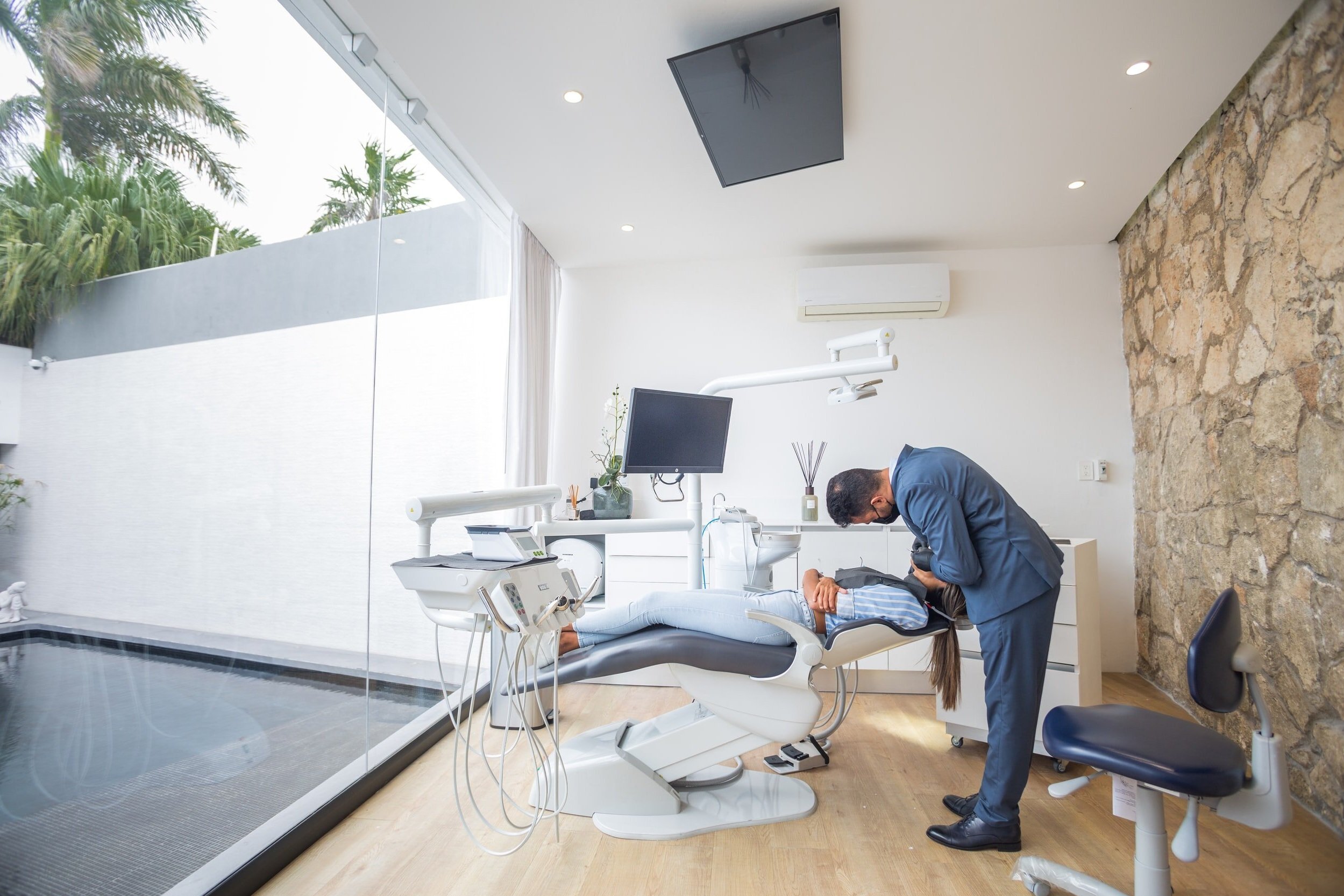
How to care for your veneers
Taking care of your new veneers is not hard but there are a few things you should keep in mind.
Practice good oral hygiene
The most important thing you can do is maintain good oral hygiene. This will extend the life of your veneers. While your veneers are not susceptible to decay, your underlying teeth are. Bad dental habits increase the risk that your natural teeth will develop cavities and/or tartar. These dental issues will put the integrity of your veneers at risk.
Proper oral hygiene will also prevent gum disease. Gum disease is particularly problematic for veneers. It causes your gums to recede, exposing the top edge of your veneer and tooth. This is less aesthetic and further increases the risk of damage.
Avoid hard foods
You can still enjoy all your favorite foods and beverages with veneers. Veneers are strong enough to withstand normal chewing forces.
However, it’s possible to chip them on hard foods. Your natural teeth below the veneers are vulnerable to the same damage. Popcorn kernels, hard candy, hard breads, and ice are some of the most common reasons for damage.
Avoid biting hard items
Biting on inedible items such as pens can wear down your veneers and cause damage over time. Take note of any unconscious chewing habits you may have.
Avoid teeth-staining drinks and tobacco products
Drinks like red wine, coffee, tea, and soda increase the chances of staining your veneers and underlying teeth. If you enjoy your coffee, tea, or red white, then consider drinking them through a straw or swish your mouth with water after you have enjoyed those high staining drinks.
Cigarettes and tobacco products will also stain your veneers. Nicotine stains will build up especially quickly on composite dental veneers. If you are a moderate to heavy smoker, porcelain dental veneers are a better option for you as they are more stain-resistant.
Use non-abrasive toothpaste
Some toothpaste brands contain ingredients that are too abrasive for your veneers. Check the ingredients for substances like hydrogen peroxide, sodium bicarbonate, or baking soda. The former will eat away at your veneers’ surface while the latter’s gritty texture will cause the veneers to lose their color and sheen.
In general, choose gel products over those in paste form as they tend to contain none of the ingredients mentioned. Toothpaste with fluoride will prevent tooth decay as well.
No need to use teeth whitening toothpastes either. They are not necessary and may even be detrimental to your veneers.
Use a soft toothbrush
Pick a toothbrush with soft bristles. Hard toothbrushes will scratch the surface of your veneers.
Do not grind your teeth
If you grind your teeth in your sleep, we can give you a custom made mouthguard. Excessive grinding can cause your veneers or crack, chip, and break down.
If you develop a grinding habit after the veneers have been placed, see a local dentist who can create a mouthguard.
Your speech may be affected until your tongue adapts
Even though the changes are slight, (measurable only in millimeters), your mouth is extremely sensitive and will exaggerate those feelings at first. After a couple of days, your mouth and speech will feel normal again.
Visit your local dentist regularly
It’s important to see your local dentist every 6 months. They remove tartar and keep your oral health in check, avoiding decay and cavities that, as we’ve previously stated, will damage your veneers.
Have composite veneers polished every 6-12 months at your regular dental visit to remove stains and to restore their glossy surface, making them look good and more resistant to stains collecting.
